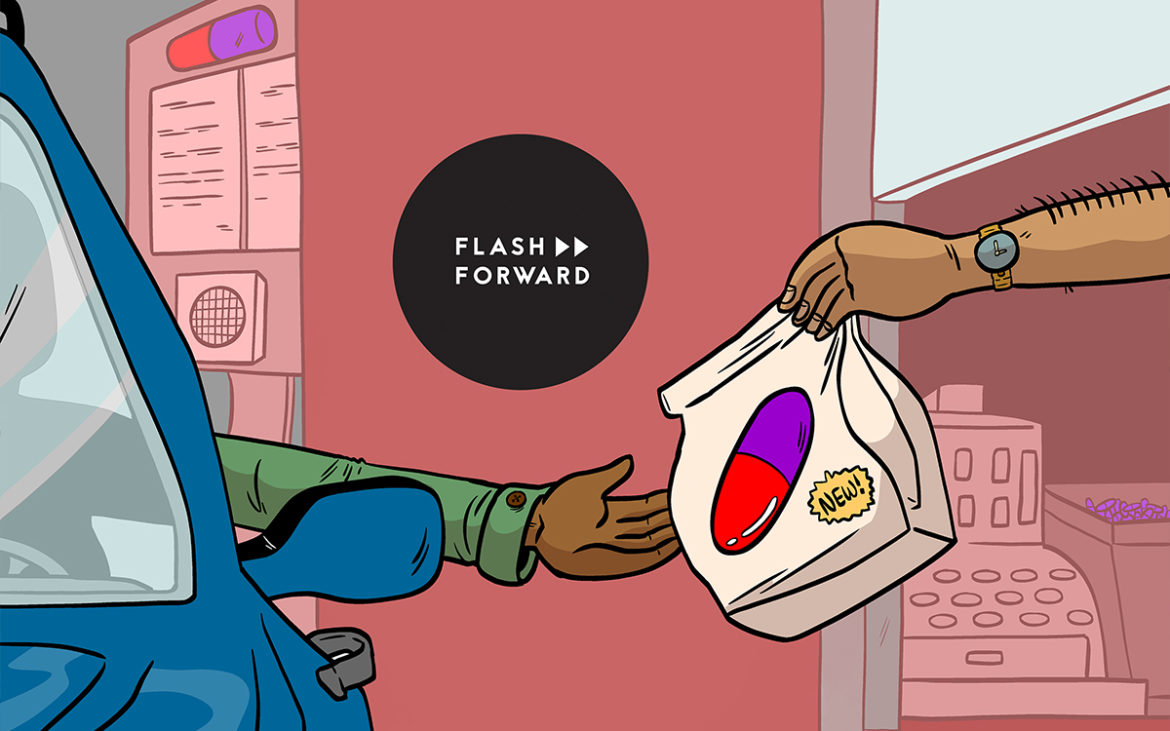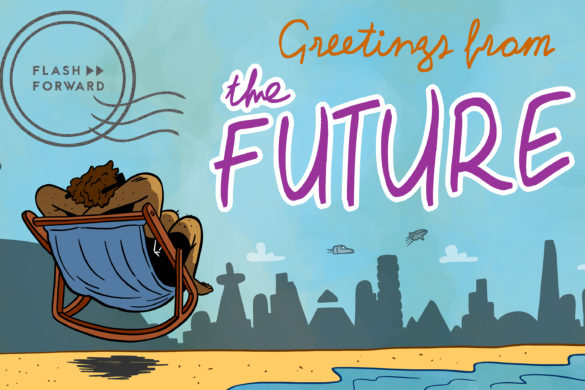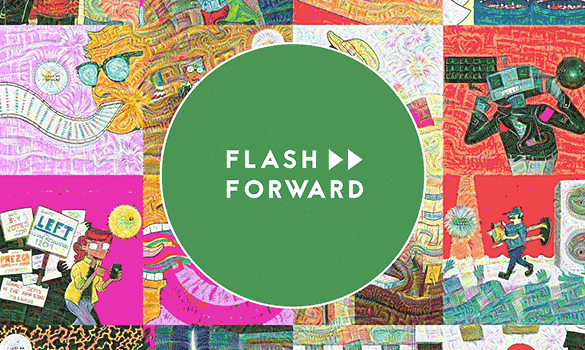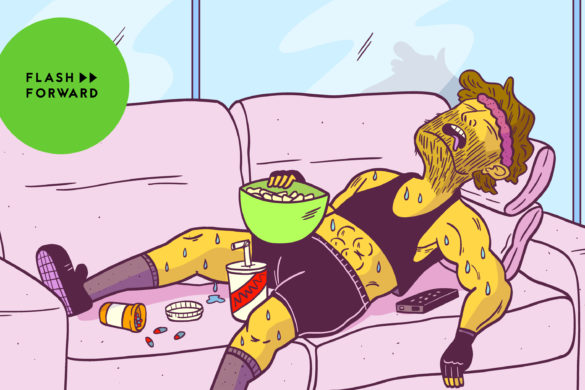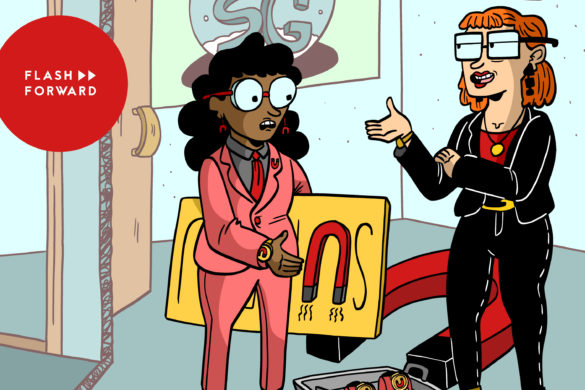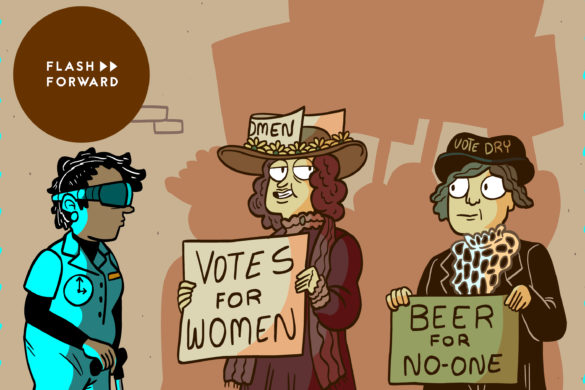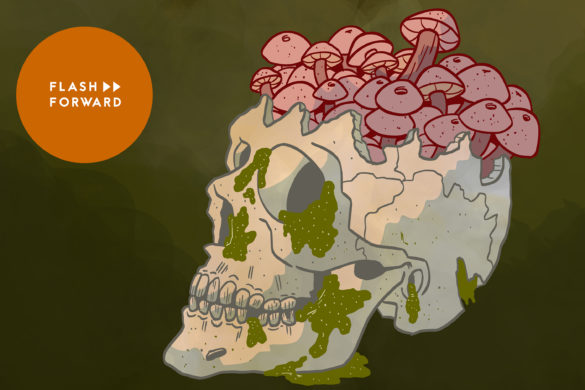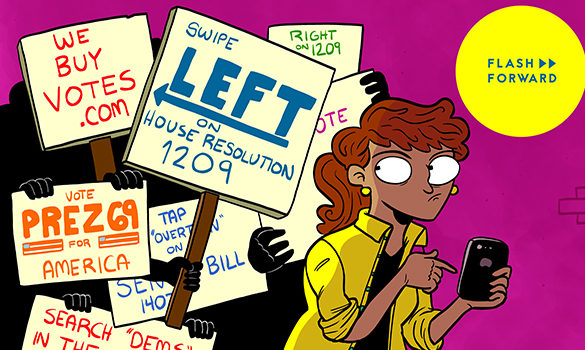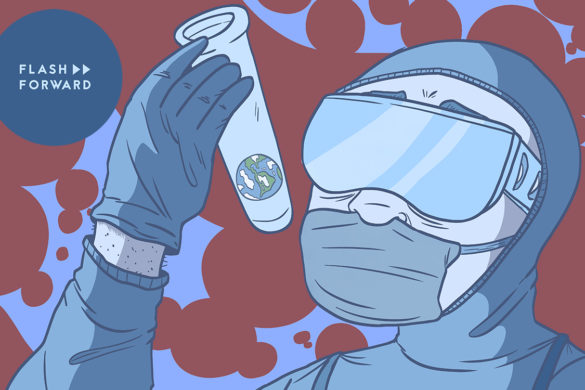This episode we go to a future with pirates! There always has to be at least one pirate episode per season. This time it’s pharmaceutical pirates.
This episode was inspired by a new book by Annalee Newitz called Autonomous. It’s very good and you should read it. I am not being paid to say that, I just really like the book.
Autonomous tells the story of two main characters: Jack the pharmaceutical pirate, and Palladin the bot that is trying to hunt her down. A few cool links related to Autonomous:
- How to Write a Novel Set More Than 125 Years in the Future
- Robots need civil rights, too
- Sword and Laser podcast #306 – Indentured Robotude w/ Annalee Newitz
- Pirates and Robots Square Off Over Drugs in Annalee Newitz’s Debut Novel
- In A Future Ruled By Big Pharma, A Robot Tentatively Explores Freedom — And Sex: ‘Autonomous’
For our episode, we focused on the pharmaceutical piracy part of the book. And to talk to us about the nitty gritty of how pharmaceuticals are made, and how they’re protected by patents, I talked to Jason Kahana, the founder and president of a small biotech company called Integrity Biosolutions, and Charles Duan, the director of the Patent Reform Project at Public Knowledge. [Full disclosure: my father and Jason know each other and have worked together in the past.]
- These Aren’t the Patent Remedies You’re Looking For (No, Really)
- Teva Pharmaceuticals Antitrust Settlement is a Win for Competition
- Martin Shkreli Is Big Pharma’s Biggest A**hole
- Drug C.E.O. Martin Shkreli Arrested on Fraud Charges
- Yusuf Hamied, generic drugs boss
- The Treasure of Mumbai
- Pharmaceutical deformulation
- The Role of Reverse Engineering in the Development of Generic Formulations
- The Impact of the US Food and Drug Administration Chlorofluorocarbon Ban on Out-of-pocket Costs and Use of Albuterol Inhalers Among Individuals With Asthma
- Do Patents Disclose Useful Information?
- We Are Definitely Against Indefiniteness in Patents
Flash Forward is produced by me, Rose Eveleth. The intro music is by Asura and the outtro and ad-break music is by Hussalonia. The pirate music from the intro is by Nerve Damage. The future voices this episode were played by Tamara Krinsky, Brent Rose and Stephen Granade. The episode art is by Matt Lubchansky.
If you want to suggest a future we should take on, send us a note on Twitter, Facebook or by email at info@flashforwardpod.com. We love hearing your ideas! And if you think you’ve spotted one of the little references I’ve hidden in the episode, email us there too. If you’re right, I’ll send you something cool.
And if you want to support the show, there are a few ways you can do that too! We have a Patreon page, where you can donate to the show. But if that’s not in the cards for you, you can head to iTunes and leave us a nice review or just tell your friends about us. Those things really do help.
That’s all for this future, come back next month and we’ll travel to a new one.
▹▹▹▹▹▹▹▹▹▹▹▹▹▹▹▹▹▹▹▹▹▹▹▹▹▹▹▹▹▹▹▹▹▹▹▹▹▹▹▹▹▹▹▹▹▹▹▹▹▹▹▹▹▹▹▹▹▹▹▹▹▹▹▹▹▹
TRANSCRIPT
Rose: Hello and welcome to Flash Forward! I’m Rose and I’m your host.
Flash Forward is a show about the future. Every episode we take on a specific possible… or not so possible future scenario. We always start with a little field trip to the future, to check out what’s going on, and then we teleport back to today to talk to experts about how that world we just heard might really go down.
Before we start today’s episode, I have a quick announcement for you! Flash Forward is going back to bi-weekly. Bi-monthly? Every other week. I never know the right way to say that. Anyway, the show will be twice as frequent as it has been in the past, which is the important part of this! I am back to doing Flash Forward full time. Which also means that if you like the show and want to help keep it going now is a very, very good time to become a donor! You can learn more about how to help support Flash Forward at flashforwardpod.com/support.
Okay, that’s the big news! Now let’s go to the future!
This episode we’re starting in the year 2144.
[typing]
>> Analyzing
C11H17N3O8
511.393 g/mol
C(C(=O)O)C(CC(=O)O)(C(=O)O)O.C(C1(C2C3C(N=C(NC34C(C1OC(C4O)(O2)O)O)N)O)O)O
>> Byphodine
>>>> Print? /// yes sound
>> whirring sound
America’s Most Wanted host: I’m Samuel Hopkins, and tonight, on America’s Most Wanted, we meet real life pirates. No, they don’t wear and eye patch or have a peg leg. Instead, they work in underground labs, making copies of drugs YOU need to stay alive.
Sounds great, right? But what if I told you that nobody tests those drugs, and they could kill you? We have to help law enforcement take these pirates down! The manhunt starts, now.
Get on the ground! You’re toast, pirates!
[typing]
>> Analyzing
red alazhi
kavam bacteria
Ambori
>> bacta
>>> Print?
[[news chime]]
News Anchor: The trial of Valerie Max, the alleged founder of the underground pharmaceutical manufacturing lab known as “The Fire Swamp,” began in Chicago on Tuesday.
According to the prosecution, The Fire Swamp connected pirate drug manufacturers with buyers, and provided everything from off-brand Viagra to chemotherapy and AIDS drugs at extremely low prices. Joining us today is Mary Kies, a patent law professor at Harvard University, welcome Mary.
Mary Kies: Thanks for having me.
Host: People have been making and selling pirated drugs for decades. But this case seems to have really captured the public’s attention. What makes this case special?
Mary Kies: Well, really what made it special was that it provided not just enhancement drugs, but also life saving ones. Most sites up until this point have focused on recreational and what are called nootropic drugs — stuff that helps you focus or study better. Those drugs are really popular of course, but they’re not generally saving lives. The Fire Swamp focused on making and selling drugs like Anastrozole and Combivir, cancer drugs and AIDS drugs. That’s what makes the site easier for the public to rally behind.
Host: Valerie Max is a mysterious person, what do we know about her?
Mary Kies: Not much really, she’s kept a very low profile. Even in the court filings, the Justice Department had a really hard time finding out very much about her. We know she has a biochemistry background, she got her PhD at Howard University. But since then, she’s done an incredibly good job of living off the grid entirely. In fact, some people think that the Valerie Max that is standing trial isn’t the real Valerie Max at all.
Host: What do you mean?
Mary Kies: Well, somehow, there are no photos of Max to be found. No biometric data either. So there’s no way for us to know if the person in custody and standing trial is who she says she is.
Host: So Valerie Max could still be out there printing pirated drugs?
Mary Kies: She could.
[typing]
>> Analyzing
C27H29NO11
14-hydroxylated version of daunorubicin
(7S,9S)-7-[(2R,4S,5S,6S)-4-amino-5-hydroxy-6-methyloxan-2-yl]oxy-6,9,11-trihydroxy-9-(2-hydroxyacetyl)-4-methoxy-8,10-dihydro-7H-tetracene-5,12-dione
>>Doxorubicin
>>>> Print? // yes sound
>>> whirring sound
Rose: Okay, so this is a future in which drug pirates are out there making copies of pharmaceuticals to give away or sell at really cheap prices. And this future was inspired by a book that just came out by Annalee Newitz called Autonomous.
Annalee Newitz: I’m a science journalist by day, and actually by night too.
Rose: Annalee has been on Flash Forward before, and she’s written a couple of non-fiction books, but this is her first novel. Autonomous is about a lot of different things — There’s pirates, there’s robots, there’s AI consciousness! But one of the big themes that she explores throughout the book is ownership, and specifically the connection between the ownership of AI, and the ownership of things like drug patents.
Annalee: The reason why the two things kind of stuck together in my mind is that they both are issues around property that verge on being ethical or human rights issues. Because, of course, access to medicine is a real human rights issue; and access to freedom is a human rights issue, too. And if we have an AI that is a person, that is going to be a huge concern.
So this all got smushed together in my head and wound up being a novel about a pirate and a robot. And the pirate is a pharmaceutical pirate.
Rose: The pirate’s name is Jack.
Annalee: And she’s breaking the law, so she’s being chased down by a robot which is owned by a kind of semi government organization that’s chasing after her. And so, we have two characters who are struggling with two very different aspects of property law.
Rose: As a pirate, Jack spends her time on a submarine, reverse engineering drugs for people who can’t afford them. I definitely recommend checking out Autonomous, and reading the whole saga of Jack and Paladin, the robot. The book raises a ton of really cool questions and ideas about where the future of ownership might go. But for this episode of Flash Forward, we’re going to focus specifically on the drug piracy. How likely is it that we could get real life pharmaceutical pirates like Jack?
To figure that out, we have to break the question into a few pieces. First, how hard is it to take a drug that’s on the market, and reverse engineer it?
It turns out, that if the drug is patented and FDA approved, it’s actually not as hard as I thought it would be.
Jason Kahana: I mean LSD is a drug and you know ecstasy and all those things. From a chemical standpoint they’re no more or less sophisticated than Lipitor or Viagra or Paxil or anything like that.
Rose: This is Jason Kahana, the founder and president of a small biotech company called Integrity BioSolutions.
Jason: You can also mention that I spent 15 years working in large pharma. Like, I worked for four different large pharmaceutical companies.
Rose: Full disclosure: Jason and my dad have worked together before on pharmaceutical stuff.
Jason: I think the day I met your dad he cracked his bike so he was pretty easy to spot. He was the middle aged guy wearing stretchy pants and bleeding.
Rose: Yeah, that sounds about right. Anyway, Jason says that if you have a patent for a drug, and you’re a reasonably trained chemist, you should be able to make that drug.
Jason: I mean, it really shouldn’t be any different than a recipe for Toll House cookies, right? If you get a recipe for cookies, it gives you a list of ingredients, all of which are readily available. None of them are that obscure, it doesn’t have, like, unicorn dust. So it’s all the things you can buy. And then it tells you how to mix them, and when to mix them, and how to cook them and exactly how long to cook them. You can obviously screw it up, but anybody who knows how to bake should be able to reproduce the Toll House cookie pretty well. Right? Those patents aren’t any different.
Rose: Internally, at rival pharmaceutical companies, this kind of copy-cat drug manufacturing is really common.
Jason: They do it all the time. When you have allergies, there’s Claritin, there’s Zyrtec. There are a lot of these cases where you have three, four, five drugs on the market that all hit the exact same enzyme. So, at the biochemical level, they fundamentally do the exact same thing. There’s plenty of that. There’s tons of that.
Rose: What these companies are doing isn’t necessarily EXACTLY reverse engineering their competitors’ drugs — because that would infringe on patents, which we’re going to get to in a second. But what they are doing is looking at the patent and studies that were done on the drug, which describes exactly how the drug works, and making a very similar molecule. So, let’s say that Drug A works by targeting a specific enzyme. And the company who makes Drug A publishes their studies, and their patent, saying “hey, this chemical targets this enzyme, and it works.” What their competitors can do is read that and say “okay, I know that targeting this enzyme works, and I know that a chemical that looks like this works, let me see if I can figure out a slightly different chemical that targets that same enzyme.” And this is how a ton of pharmaceutical drugs are made. So pharmaceutical companies are doing this kind of thing all the time. But lets say that you don’t work at a pharmaceutical company, and you want to start dabbling in reverse engineering drugs on your own. How much would it cost to just… build your own lab and start doing it?
Jason: Probably, maybe a hundred thousand dollars or less. If you don’t really care that it’s safe, and it’s potent, and you’re not doing all the analytical work; if you’re just going to follow that that instruction and hope that what you’ve got is exactly what you think it, would probably be… you would have to rent a lab, which would probably be a few thousand bucks a month, and then you’d probably need about thirty thousand dollars worth of equipment, maybe? It wouldn’t be terribly expensive.
Rose: And you’ll also need a good cover. Maybe some fancy letterhead, an official sounding name.
Jason: You can’t just buy a lot of these chemical building blocks without attracting some attention. You know you can’t just call up with your credit card and say, “I want a kilogram of this.” They’re going to want to make sure you have a lab.
Rose: So, for liability reasons, let me just state here for the record that neither Jason nor I are advocating that you set up your own lab and start making drugs for yourself or for others. Please, don’t sue me.
Jason: I wouldn’t recommend it. In fact, a lot of people have gotten very very very sick or killed over the years because somebody was trying to make a drug. And in the course of doing what they were doing, they got side products or contaminants which ended up to be highly highly toxic.
Rose: But the point here is that for someone with experience making drugs, you need about a hundred thousand dollars and some fancy letterhead for when you call the chemical supply company and… you’re kind of in business. Using the pharmaceutical patent, and the studies that the companies had to do for the FDA to get the drug approved, you can basically make copycat versions.
So, why don’t people do it more often?
Charles Duan: There are a lot of things. So, obviously, you can be sued for patent infringement, assuming that there is a patent. But also, you’ll just be generally in violation of regulations about distribution of drugs.
Rose: Ah, right, LAWS. Pesky, pesky laws always getting in the way. You’d be breaking… a lot of laws. And when we come back you’re going to hear from that guy, Charles Duan, about the ways that pharmaceutical companies keep their drugs safe from pharma pirates. But first, a word from our sponsors!
[[ADS]]
This episode of Flash Forward is supported in part by Bittamucin. Bittamucin is a brand new product from Mellorak, the company that brought you Cylons.
. … Just kidding, that’s not a real company, but if you do want to sponsor an episode of Flash Forward let me know! You can get in touch with me by emailing rose@flashforwardpod.com
By the way, a lot of people have asked what those hidden references that I keep mentioning are. Well you just heard one. And here’s another hint for my non-ad-skipping listeners: pay close attention to the names of the characters in our future sketches. They often mean something. Like, who are Samuel Hopkins and Mary Kies? Figuring that out, could get you a fun prize.
Okay, back to the future!
[[/ADS]]
Rose: So, in the future we’re considering right now, there is a rise in drug piracy. People who reverse engineer pharmaceuticals to give away or sell for really cheap. And we’ve covered the fact that it’s actually not as hard as you might think to actually do this kind of reverse engineering.
But there’s a pretty good reason why you’re not always hearing about pharmaceutical pirates. And that’s because there are a whole lot of enforcement mechanisms in place to keep people from making their own pharmaceuticals.
First, there drug companies fiercely protect their patents.
Charles: A patent is a government granted right. So a person would apply to the government, to ask for a patent. I’m saying I’ve got this new invention, and I think that I should get a patent on it. And if the government gives you a patent on it, what you get out of that is the right to tell other people to stop making the same invention for a certain number of years, or to pay you if they want to make the invention.
So my name is Charles Duan, I am the Director of the Patent Reform Project at Public Knowledge. Public Knowledge is a nonprofit organization that works on consumer advocacy.
Rose: So, patent law is very complicated. And it’s different all over the world. So this is by no means a comprehensive overview of patent law, and we’re going to mostly focus on the United States for this episode. In part, because that’s where patent law is perhaps the most strongly enforced. So if you’re going to get in trouble for violating a patent, it’s probably going to be in the United States.
And in the U.S., drug companies have a variety of ways of trying to extend their patents for as long as possible. Remember how we said that a patent should, in theory, be as easy to follow as a Toll House recipe? Well… in practice, that’s not exactly what happens.
Charles: There are there are a lot of well-known techniques for obscuring the way that the invention works. In the description, putting in 50 different alternatives but not saying which one is actually the best one. Here a hundred different possibilities for what the antibody could look like. We know that one of them is the best one, but we’re not going to tell you which one is the best one. If you want to figure out, you’ve got to try all hundred of them.
Rose: There are other techniques too. My favorite is leveraging the EPA to keep your drug prices high.
Charles: I’ve got I’ve got an Albuterol inhaler for asthma, and Albuterol is a drug that’s been around for, I think, like forty or fifty years. The patent only lasts twenty years, there’s no way that there can be a patent on the drug anymore. But what the manufacturer of the inhalers did was they got a patent not on the drug, but on the on the gas compound that’s used to vaporize the drug and to propel it out of the inhaler. And then they got a regulation that said that the original propellant that was used in the inhalers from forty years ago was an environmental hazard, so they were no longer allowed to sell them. So as a result, the only inhalers that are available now are brand name inhalers that cost fifty dollars. Not because the drug is new, or because there’s any patent on the drug, but because they were able to get a regulation on the environmental effects of the additional components of the inhaler.
Rose: But let’s say you’re a true pirate. And also a chemist. And you don’t care about patent law, and you are willing to sift through the hundreds of possible compounds in the patents that could work. And you have a well resourced lab.
Charles: So I think the first thing you should do, is you should move to a different country.
Rose: Charles isn’t really really joking here. Making drugs in other countries is a way that people actually do make cheap copies of pharmaceuticals. And in fact, it’s not necessarily illegal to bring those drugs into the US and sell them.
Charles: One of the things that people will sometimes do is they’ll go to a country that doesn’t have patent protection on, say Lipitor, and you can purchase the drugs there, and then you can bring that back to the United States and under the Supreme Court decision, you’re perfectly allowed now to resell that drug however you want.
Rose: There are drug companies in India, for example, that do this kind of thing. And that some US pharmaceutical companies would consider pirates. There’s this really interesting guy in India named Yusuf Hamied who runs a drug company called Cipla. Hamied is hated by many American pharmaceutical companies, because he makes cheap generic versions of drugs that those companies would like to sell for high prices. Drugs that are patented. In 2000, for example, Hamied offered a generic AIDS medication for a tenth of the sales price.
Drug companies call Hamied a pirate. Other people call him a Robin Hood type figure. He’s kind of like Annalee’s character, Jack. Except he doesn’t live on a submarine. And he’s a billionaire. I’ll link to some interesting profiles of him in the show notes.
Anyway. This is a lot of talk about today, when this show is supposed to be about the future. So let’s talk about tomorrow.
One thing that Autonomous predicts is that medicine will continue to get more and more expensive. The piracy we see in the book is largely driven by an increase in the power of nefarious drug companies who jack up the prices for their drugs such that most people can’t afford to buy them.
Which… might sound familiar, especially if you’ve been following the case of Martin Shkreli.
Annalee: So I actually started the book before the Martin Shkreli scandal. But people like him were exactly what I was imagining. That he would become kind of the norm.
Rose: We’re not going to go into his case in detail. There are a lot of twists and turns that you can read on the internet. But the basic gist is that in Shkreli had a habit of buying up drugs that people need to live, and hiking up their prices. In 2014, a company that he ran bought a drug called Thiola. People who take Thiola, have to take ten to fifteen pills a day. Thiola used to cost $1.50 per pill, but Shkreli’s company increased that price to $30 a pill.
In 2015, another company Shkreli ran bought a drug called Daraprim, which is used to treat patients with AIDS. His company increased the price of that drug from US $13.50 to US $750 per pill.
Shkreli is kind of a cartoon villain at this point. But he’s exactly the kind of pharmaceutical executive that run the entire industry in the future world of Autonomous.
Annalee: Part of this future is pharmaceutical companies have become almost
indistinguishable from tech companies now. Even more than they are today, they’re about trying to make money. That’s the bottom line, there’s no pretending to help people.
Rose: We don’t have to travel to the future to find a world where healthcare is really expensive and a lot of people can’t afford life saving medications. That is happening right now, all over the world. And some of it is indeed fueled by big drug companies that want to make money.
Jason: Look, I’m a scientist. I never got rich. You know, guys like your dad and me, we worked on new things mostly because that’s what we were trained to do and that’s what we’re passionate about. So let’s say you’re working, and you want to succeed and you want to make some money. Well, do you really want to figure out how the human body works, or whether or not this idea works? Or do you want to say, “Well look, I know Lipitor makes a colossal amount of money. So why don’t I try to make my own Lipitor?”
If you’re making money for the company, no one is going to say, “Well big deal, you made ten billion dollars this year, but it was to give people erections. That guy’s been trying to cure cancer for twenty years and has been banging his head against the wall.” Who do you think the vice president of the company is going to be?
Rose: So if pharmaceutical companies get more and more powerful, and more and more unscrupulous, will drug piracy be the result? Probably in some form. But perhaps not in the way that Autonomous predicts. Because it really is expensive, difficult and dangerous to try and manufacture pharmaceutical drugs in an off-the-radar lab. But there are other technologies that might make it easier.
Charles: There is this interesting question of what happens if 3-D printing gets to the point that people can just print their own drugs. And then instead of distributing the drugs themselves, you just distribute the file that will tell people how to make them, but they could just make them at home.
Rose: In order to be able to 3-D print drugs, you would still have to get over some of the hurdles we talked about — like having the right chemicals on hand. But you wouldn’t necessarily have to do all of the reverse engineering yourself.
Charles: And that’s actually raising all sorts of really interesting question about patent law because patent law has just never dealt with the possibility that somebody could send not the actual invention, but instructions by which people could automatically make things.
Rose: Once again, I am not endorsing this idea, please don’t sue me, it’s very dangerous to do this.
Charles: There’s real public safety concern with people who are printing out unsafe things. On the other hand, generally it’s been the view that if you do something privately, in your own home, the federal government shouldn’t be coming to your door and complaining about your own private activities.
Rose: On the flip side, some companies would really love to just have endless patents. In fact, infinite patent terms is a thing that has been proposed.
Charles: We don’t grant patents just because we want to make inventors rich. The reason that the United States grants patents is that it thinks, by granting these sorts of exclusive rights to people for a short amount of time, they’ll ultimately encourage people to invent things. And more importantly to tell the world how their inventions work. And if you grant infinite patents what’s the point of telling people how your invention works if no one’s ever going to be able to use it in the future. The reason we grant patents is to ultimately allow people to use the invention for free in exchange for a small upfront payment. So it doesn’t make any sense for that upfront payment to go on forever.
Rose: If drug patents do become infinite, well then you can probably bet on more patent-busting pirates because drugs would simply never go generic. Which means they would forever be locked up in the hands of the pharmaceutical industry, who can then charge however much they want for them, forever. At which point you would get to ask yourself, chemists of the world, is it time finally to buy a submarine and become a pirate?
Annalee: Part of the book is about how do you choose; in a situation where you know there’s incredible injustice going on, what kind of subversion do you choose to engage in? And Jack chooses a very radical pat. She chooses to go completely outside the law, which means that certain kinds of things are no longer ever going to be accessible to her. She’s never going to be able to have a normal life because she’s constantly got to be vigilant about who knows what she’s doing and she has to constantly cover her tracks. On the other hand, she’s actually able to get free drugs to people who need it.
Rose: This is a question I think about all the time when it comes to the future. There are people like Charles who are protecting consumers by working on the inside. And there are people who think that’s simply never going to get us to a better future. And some days they both seem right. So how do you pick?
Annalee: As someone who started my career as a writer being really politically radical and thinking that I was going to totally change the world and peacefully dismantle capitalism just by writing articles about it that would just persuade everyone and having to realize like, oh it’s a little more complicated than that. And I think that these characters are having to go through different stages of mourning that a lot activists go through. Where you realize, “oh, yeah I might not be able to change this thing in my lifetime.”
Rose: So, the choice is yours my friends. To pirate or not to pirate? That… is the question.
[music up]
That’s all for this episode. For more information about any of the stuff we talked about, head to Flashforwardpod.com where you can find more links. Those links are also in the show notes!
Flash Forward is produced by me, Rose Eveleth. The intro music is by Asura and the outtro music is by Hussalonia. Our future voices this week were provided by Brent Rose who played Samuel Hopkins, Stephen Granade who played our news anchor and Tamara Krinsky who played Mary Kies. The episode art is by Matt Lubchansky.
If you want to suggest a future we should take on, send us a note on Twitter, Facebook or by email at info@flashforwardpod.com. We love hearing your ideas! And if you think you’ve spotted one of the little references I’ve hidden in the episode, email us there too. If you’re right, I’ll send you something cool.
And if you want to support the show, there are a few ways you can do that too! We have a Patreon page, where you can donate to the show. But if that’s not in the cards for you, you can head to iTunes and leave us a nice review or just tell your friends about us. Those things really do help.
That’s all for this future, come back next time and we’ll travel to a new one. In just two weeks! So soon! Okay bye!

